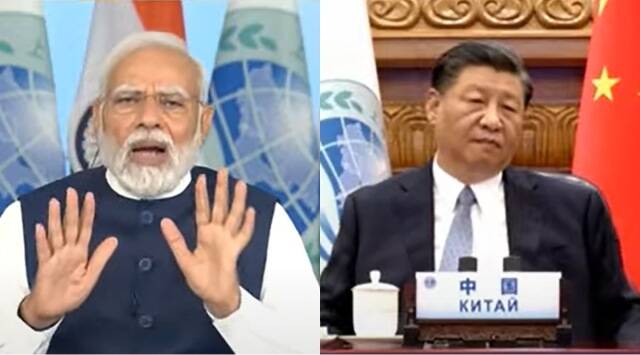
India declined to ratify the paragraph endorsing the Belt and Roads Initiative (BRI), a favourite project of Chinese President Xi Jinping, in the New Delhi declaration issued at the conclusion of the leaders’ summit of the Shanghai Cooperation Organisation (SCO).
When India declined to ratify the paragraph in the Samarkand declaration in 2022, a similar formulation was adopted.
“Reaffirming their support for China’s “Belt and Road Initiative” (BRI) initiative, the Republics of Kazakhstan, Kyrgyzstan, the Islamic Republic of Pakistan, the Russian Federation, the Republic of Tajikistan, and the Republic of Uzbekistan note the ongoing work to jointly implement this project, including efforts to link the construction of the Eurasian Economic Union and BRI,” reads the BRI paragraph in the New Delhi declaration of 2023.
India has consistently opposed the BRI because it believes that it breaches its territorial integrity and sovereignty.
This is comparable to the Samarkand Declaration of 2022, which stated that Kazakhstan, the Kyrgyz Republic, Pakistan, Russia, Tajikistan, and Uzbekistan, “reaffirming their support for China’s Belt and Road initiative (BRI), note the ongoing work to jointly implement this project, including efforts to align the progress of the Eurasian Economic Union and BRI.”
The Delhi declaration utilises similar language to the Samarkand declaration on the subject of terrorism, but substitutes the word “chauvinism” for the word “ultranationalism” this time.
According to the New Delhi declaration, “The member states consider it important to build up joint coordinated efforts by the international community to counter the activities of terrorist, separatist, and extremist groups, paying special attention to preventing the spread of religious intolerance, aggressive nationalism, ethnic and racial discrimination, xenophobia, ideas of fascism and chauvinism.”
“The member states deem it important to boost the international community’s joint efforts in countering attempts to involve young people in the activities of terrorist, separatist, and extremist groups,” the Samarkand Declaration read. “In particular, they pay attention to preventing the spread of religious intolerance, aggressive nationalism, ethnic and racial discrimination, xenophobia, and ideas of fascism and ultranationalism.”
Another modification is that the phrase “deceptive purposes” used in the 2022 declaration is replaced with “mercenary goals” in the New Delhi declaration.
Tuesday’s declaration stated, “The member states note the inadmissibility of interference in the internal affairs of states under the pretext of countering terrorism and extremism, as well as unacceptability of using terrorist, extremist and radical groups for mercenary goals.”
According to the Samarkand Declaration, “the member states believe it is unacceptable to interfere in countries’ internal affairs under the pretext of combating terrorism and extremism, as well as the unacceptability of using terrorist, extremist, and radical groups for deceptive purposes.”
The Samarkand Declaration had stated that “Reaffirming their strong commitment to fighting terrorism, separatism and extremism, the Member States are determined to continue taking active measures to eliminate the conditions conducive to the spread of terrorism, to disrupt the terror financing channels, to suppress recruitment activities and cross-border movement of terrorists, to counter extremism, and the radicalization of youth, the Delhi Declaration is nearly a repetition of that statement.”
Like before, it also stated that the members would work to create “common principles and approaches to form a united list of terrorist, separatist, and extremist organisations whose activities are prohibited on the territories of the SCO Member States,” “subject to their national laws and on the basis of consensus.”
It stated that member states “advocate respect for the right of people to an independent and democratic choice of the paths of their political and socioeconomic development, emphasise that the principles of mutual respect for sovereignty, independence, territorial integrity of states, equality, mutual benefit, non-interference in internal affairs, and non-use of force or threats to use force” although the Ukraine conflict was not mentioned, as it was last time in Samarkand. They reiterate their dedication to using communication and consultation to settle international conflicts peacefully.
Instead of the word “conflicts” used previously, “disagreements” was used in the Delhi declaration.
“The member states stand for respecting the right of nations to an independent and democratic choice of their political, social, and economic development path, underscoring that the principles of mutual respect of sovereignty, independence, territorial integrity of states, equality, mutual benefit, non-interference in internal affairs, and non-use of force or threat of force serve as the foundation for the sustainable development,” the Samarkand Declaration had stated in 2022. They reaffirm their dedication to the peaceful resolution of international disputes and conflicts through negotiations and consultations.

















